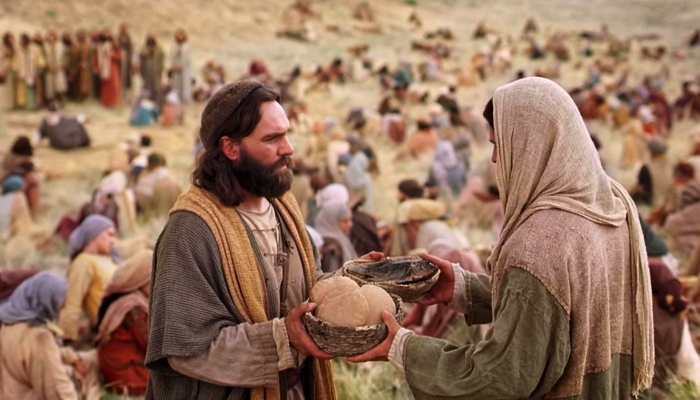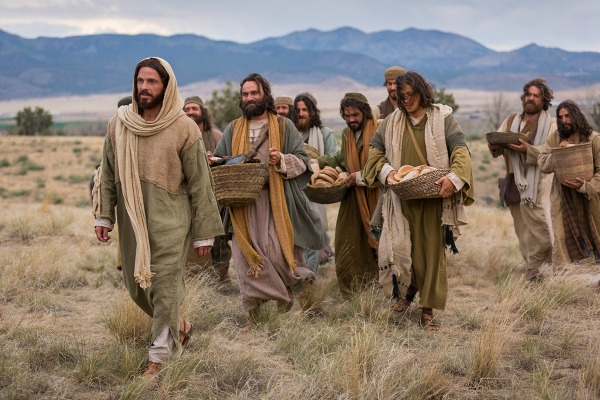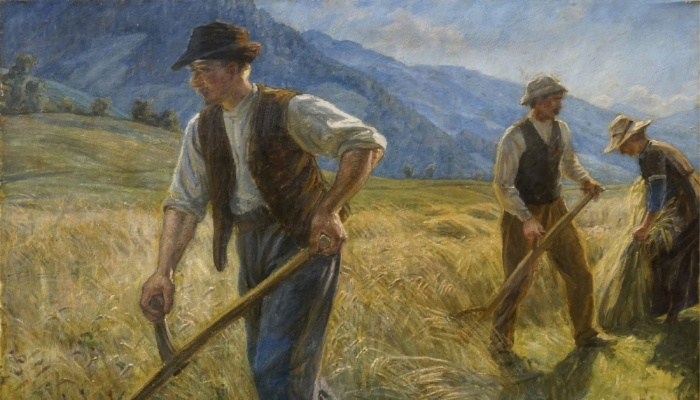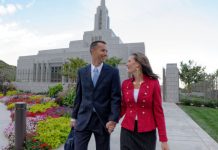
God wants to work with us, not for us. Somewhere inside, we all know that’s true. It’s a no-brainer. Yet, we oftentimes still approach God hoping that this time, He’ll cut us some slack and do us a solid without requiring any effort on our part—but that’s just not how this prayer thing works.
Elder Scott’s bombshell of a talk

Back in ’91, Elder Richard G. Scott gave a great talk called Obtaining Help From the Lord. In it, he talks about the challenge of petitioning God for certain blessings:
True, the Lord has said, ‘Ask, and ye shall receive.’ (D&C 4:7.) But He also declared, ‘Behold, you have not understood; you have supposed that I would give it unto you, when you took no thought save it was to ask me.’ (D&C 9:7.)
It is evident that He intends that we do our part. But what, specifically, are we to do? No one would expect to receive a result from physical law without obeying it. Spiritual law is the same. As much as we want help, we must expect to follow the spiritual law that controls that help. Spiritual law is not mysterious. It is something that we can understand. The scriptures define it in significant detail.
Elder Scott then continues to outline, scripturally, that which comprises “doing our part.” He lists that is our responsibility to,
- Ask the Father in the name of Christ (D&C 50:29-30)
- Diligently keep His commandments (D&C 82:10, 1 Jn. 3:22, 1 Ne. 15:11, D&C 59:21)
- Ask with faith in Christ (1 Ne. 15:11, Enos 1:15, Mormon 9:21, D&C 8:10)
- Ask for that which is right (3 Ne. 18:20, D&C 88:64)
- Harden not our hearts (1 Ne. 15:11)
- Express gratitude (D&C 59:21)
If we meet the demands of this spiritual law, the result will come. Let’s also not forget that asking in faith is incomplete without acting in faith. We’ll see more of that in the following examples…
Examples from the scriptures of the Lord working with people

Example 1: In the Book of Alma there’s this great story about a battle between the Nephites, led by Captain Moroni, and the Lamanites, led by the Nephite dissident, Zerahemnah. The Nephites win and give the credit to God. The Lamanites, on the other hand, credit the Nephite win to their sturdy armor. The reality is that God granted the Nephites the win because they did their part, they acted in faith, and prepared themselves with armor. He was working with the Nephites, not for them.
Example 2: One of the greatest miracles in the New Testament is that of the multiplication of the loaves and fishes. At face value, it might seem like God did all the work. And indeed, it was the power of God that multiplied the bread and fish, but before that could happen, this happened in Matthew 14:
And [the disciples said] unto him, We have here but five loaves, and two fishes.
[Christ] said, Bring them hither to me.
Before Christ multiplied the bread and fish, the disciples gathered all the bread and fish they had available. That was their part (and an act of faith). Once that was done, God took care of the rest.
Example 3: Remember that one time when God parted the Red Sea so that Moses and the Israelites could pass through and escape the Egyptians? Seems pretty one-sided, right? What could Moses possibly do as “his part?” Exodus 14:16 states,
But lift thou up thy rod, and stretch out thine hand over the sea, and divide it: and the children of Israel shall go on dry ground through the midst of the sea.
So, at the very least, we know two things: First, Moses and the Israelites made the journey to the coast of the Red Sea. Second, Moses had to lift up his rod and stretch his hand out over the sea. That was his part. It’s a small part compared to what God blessed them with, but that’s what makes our God so awesome. He returns our meager efforts with overwhelming blessings.
That said, could God have just zapped the Israelites straight to the promised land in the blink of an eye? Sure. Can God just shazam the answers to your prayers right to your front door? Of course. But that’s not how God does things. His plan is bigger than that.
Why do we have to do our part?
We have to do our part because God wants us to become like Him one day. In order to do be that, we have to be able to make and act upon decisions for ourselves. If we want to fulfill our divine potential, we have to follow in Christ’s footsteps with our own feet.
God isn’t a babysitter waiting to cater to our every need. He’s a trainer, helping us achieve our maximum potential, hoping we’ll one day become trainers ourselves.
Be careful with prayer
When we pray, let’s refrain from asking for blessings we ourselves are not willing to work for. A prayer isn’t a Christmas wish list.
If we pray for safety throughout our day, we’d better be wearing our seat belt in the car.
If we pray for a good night’s rest, we’d better get to bed at a reasonable hour.
If we pray for a blessing on our meals, we better not have used that mayo we left out overnight.
But what about the stuff that’s really outside of our control? In the previously cited talk, Elder Scott explains,
The blessing [we seek] resolves those things which are beyond our own capacity to influence either personally or with the help of others. Yet we must do our part for the blessing to be realized.
So, for example, if we take care of the seat belt part, maybe God helps keep us out of the way of potentially dangerous drivers (something largely outside of our control). The blessing is that which we cannot control for ourselves. Asking God to do the things we are able to do for ourselves is missing the mark, though it’s totally appropriate to ask the Lord to consecrate our own efforts for our benefit (as opposed to asking Him to put forth the effort).
If we do our part, in whatever form that may be, God will do His part. But if you don’t want to take my word for it, take Elder Scott’s,
… I solemnly testify that the Lord will help you when you carefully obey the spiritual law upon which that help is predicated. He is your Father. You are His child. He loves you. He will never let you down. I know He will bless you.







